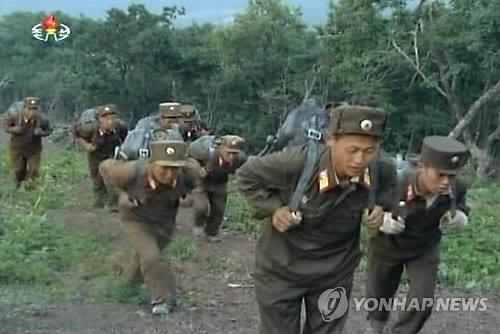N. Korea revises rules of military service exemption to address manpower shortages: report
By 임정요Published : Aug. 12, 2016 - 11:27
North Korea has been revising the rules of exempting people from the compulsory military service in a bid to address manpower shortages in the military, the U.S.-based Radio Free Asia said Friday.
Citing a North Korean source in North Hamgyong Province, the RFA said only childs, and children of plantation workers and mining laborers had been previously exempted from military service, with them being required to work at their parents' workplaces.
"But the revised rules stipulate that anyone aged in their mid-30s or younger who is not subject to military service is now required to join the Army," the source was quoted as saying.
According to the source, the new rules have also applied to young people who are working at firms or married after being exempted from military service.

The North's birthrate began to fall and its public food rationing system virtually collapsed after a massive famine swept through the country in the mid-1990s, leading to a sharp fall in the youth population for military service in the 2010s. (Yonhap)










![[KH Explains] Naver’s Line dilemma: Lose global footing for cash?](http://res.heraldm.com/phpwas/restmb_idxmake.php?idx=644&simg=/content/image/2024/05/14/20240514050624_0.jpg&u=)
![[Herald Interview] Carbon breakthrough in Korea: Making diamonds at atmospheric pressure](http://res.heraldm.com/phpwas/restmb_idxmake.php?idx=644&simg=/content/image/2024/05/14/20240514050559_0.jpg&u=20240514184059)






